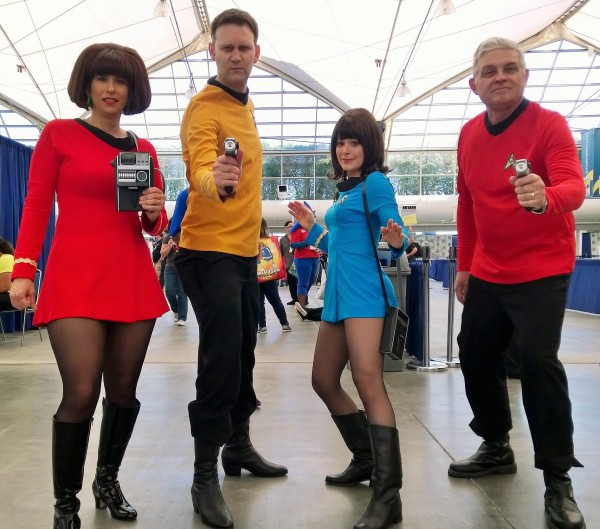The world's most lively pop-culture event reaches the half-way mark today. Four glorious days of geekdom concludes tomorrow at 5 pm PDT, but there's lots to come before the end. Saturday is typically Comic-Con's busiest and brightest day. With the masquerade ball coming tonight, cosplayers will be everywhere. I reflected on "the roles we play" three years ago and adapted the post into the introduction to my book Comic-Con Heroes: The Fans Who Make the Greatest Show on Earth.
About 130,000 make the pop-culture pilgrimage. They come for all different reasons. Some love comics. Others want to see their favorites stars, close up or in celebrity panels. Collectibles draw many people -- those free or purchased. Others want to meet those whom they idolize, which might be getting an autograph from an actor or chatting with an artist. Then there are the artists, writers, and other storytellers who want to learn something that will turn what they love into successful careers. But most attendees share something in common: They are fans. Many are geeks, while others see themselves as misfits -- non-conformists who aspire for something greater.
In conducting interviews last year for the book and others over the past couple of days, two themes are constant: Many attendees feel out of place in their real lives. But at Comic-Con they can be free to be themselves, to be accepted, and to be understood. The other theme is storytelling. Everyone seeks some story -- in the anime, artwork, books, comics, films, graphic novels, TV shows or content producers and stars they love.
Storytelling inspires people to aspire for something better. It's all the story they tell about the roles we play everyday and the people we wish we could be. Many attendees express some story about themselves through the costumes worn or the famous folks admired.
San Diego Comic-Con is an amazing amalgamation of hopes and aspirations -- and the grandest storytelling. The first, full three-day event took place from Aug. 1-3, 1970, at the U.S. Grand Hotel, with about 300 attendees and sci-fi luminaries of the day, including Ray Bradbury and A.E. van Vogt. In 2014, fans storm the San Diego Convention Center to enter, for four days and a preview night, an alternate reality, where the social rules binding them everyday no longer apply.
From the early days, the convention embraced other arts, including pulp media such as movies. However, comics' prominence diminishes in the new century. Hollywood is in takeover mode, as it has been since the previous decade. Comic-Con is now a required pilgrimage for actors, filmmakers, producers, or screenwriters. That said, the real stars aren't the big-screen actors and showrunners but the small, bit-players roaming the halls; the attendees.
They are the best the thing about Comic-Con. OK, it's a tie. Storytelling is the other best thing. Hope is the unifying theme: That anyone can be a hero. That everyone is a story unfolding. Stated differently: The best thing about San Diego Comic-Con is you.
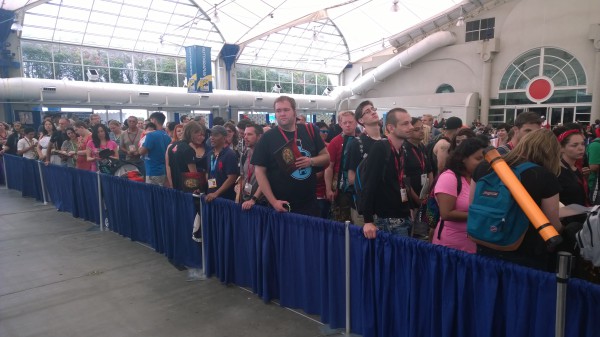
People wait in the autograph line for Bill Finger, whose anniversary is celebrated during this year's Con. The uncredited Batman co-creator died 40 years ago. Fans meet and receive autographs form his granddaughter Athena Finger.
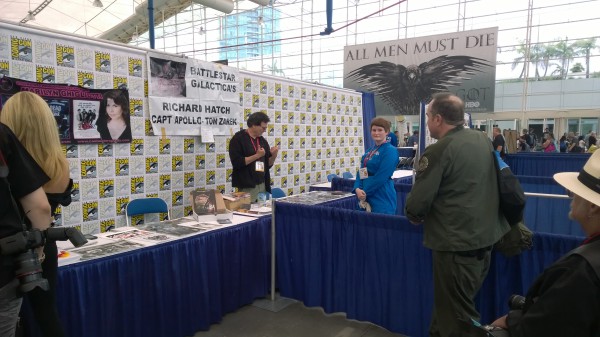
Nearby, the autograph line is much thinner for the very living Battlestar Galactica star Richard Hatch.
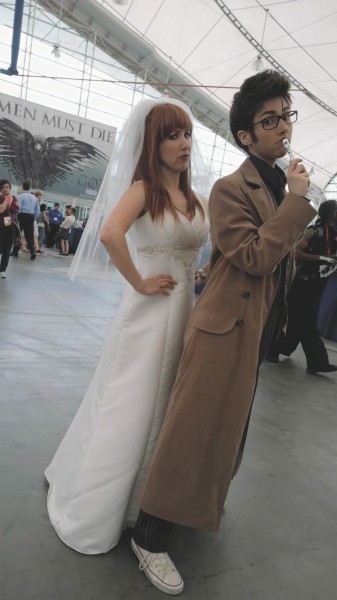
The Hillywood sisters stop and pose, and seem surprised I recognize them. I interviewed them in 2009. They're here in Dr. Who dress, promoting their fun parody video embedded below.
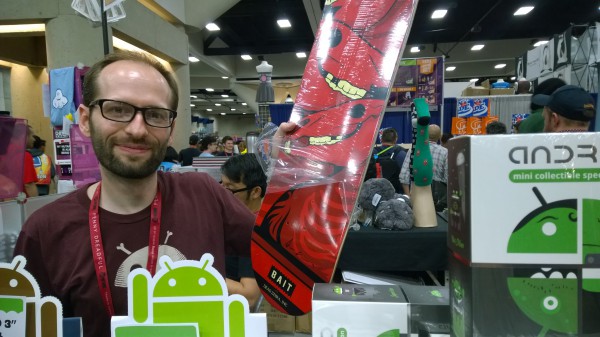
Artist Andrew Bell holds up a signed skateboard, with one of his designs.
Photo Credits: Joe Wilcox


